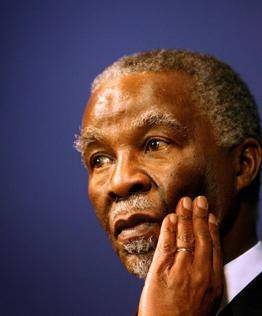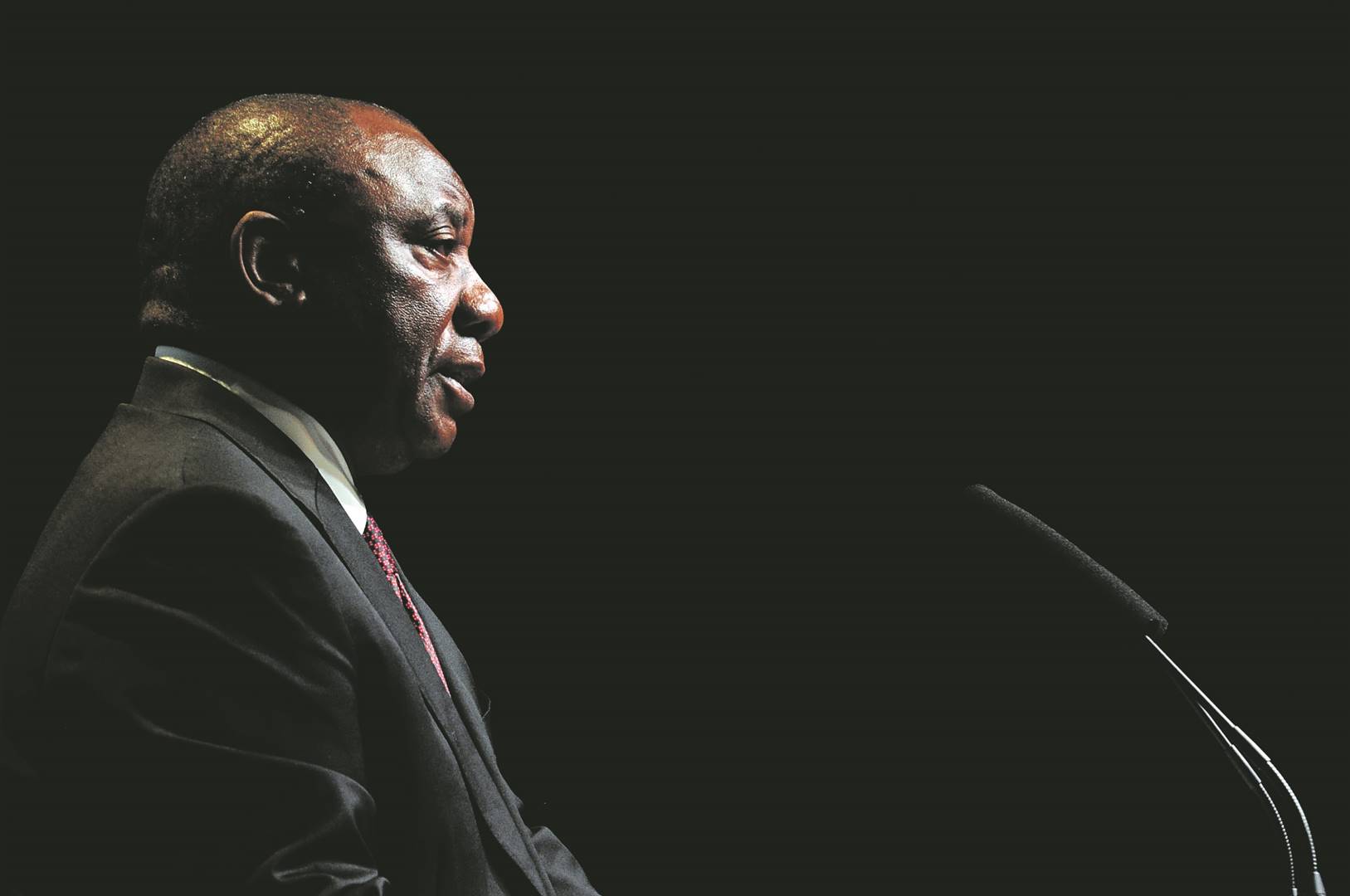Roman Stoic philosopher Lucius Annaeus Seneca once said: “He who dreads hostility too much is unfit to rule.” Unfortunately, avoiding conflict, reassuring everyone and attempting an impossible broad consensus even when a moment demands a clear choice, is the quintessential governing approach of President Cyril Ramaphosa.
As noble as this is, it leaves a vacuum to be exploited by those who unlike him, do not dread hostility. This leaves the president looking weak on policy direction, reactionary and defensive as his detractors are on the offensive, and opens a flank that leaves his supporters and subordinates vulnerable and defending without much resolve and clarity from the president.
Governing is about making hard choices from competing goals and then putting real commitment on those choices, explaining your rationale for your choices and then forging forward with much vigour and determination. People don’t have to agree with you as a leader, they must only understand your thought process and your rationale.
Ramaphosa’s approach of tip-toeing and avoiding all confrontation on policy, looking for areas of convergence with all stakeholders is putting his vision in a state of paralysis and is leaving this country handicapped.
The result of this vacillation is a clash of his fanatical ministers – as we saw earlier with Finance Minister Tito Mboweni, Transport Minister Fikile Mbalula and Gauteng premier David Makhura, who clearly are frustrated by hard political choices that should be the president’s to make now falling on their laps. We also saw this between ANC secretary-general Ace Magashule, Mboweni and ANC head of economic cluster Enoch Godongwana on the nationalisation of the Reserve Bank.
A leader must never tip-toe on policy, where his voice ebbs and flows depending on the easier way out. This leads to the dissatisfaction and disappointment of everyone as people realise the leader’s lack of appetite to make the hard decisions.
The 2017 ANC Nasrec conference made some hard resolutions and decided that government must end corporate monopolies, establish a state mining company and a state-owned pharmaceutical company, broaden ownership of the economy, invest in prescribed assets, nationalise the Reserve Bank and accelerate land reform.
Hard resolutions are not new to the ANC, but fiddling around them is. In August 1994, Thabo Mbeki published a document entitled Unmandated reflections – effectively his governing manifesto.
It stated government priorities. Mbeki stated in it that the stabilisation of the negotiated settlement, building governing capacity, accumulating state resources and financial muscle, building a thriving economy, all would be pursued with greater vigour and determination before more social imperatives could be fully delivered. Government could not “embark on ambitious transformation programmes before they had the capacity properly to plan and implement these programmes”, Mbeki said.
Then Mbeki preempted the reactions of various stakeholders to his priorities and his document became exactly what he had intended it to be – a preemptive strike and a declaration that he was ready to go to war for his plans, if it was the last thing he did.
Equally, publicising his plans was clearly to give his rationale to the nation and most importantly, it showed that he understood the position of all critical sectors of the economy and their immediate needs. But the reality of government in 1994 was that it needed to be built first, before unrealistic demands could be placed on it.
True to his genius, every sector did exactly what he had predicted. As government would be building its capacity and balance sheet, having been handed an institutionally paralysed country and a $23 billion government debt, Mbeki did not really have the luxury that many of his detractors had.
Immediately the opposition parties, particularly the National Party and Democratic Party, began to “wage a sustained campaign” aimed at convincing “the public that the ANC government had no capacity to govern, was incompetent and had no internal coherence within itself”, just as Mbeki had predicted.
The ANC outside government – the grassroots structures at all levels – as Mbeki had predicted, began to be used and to be “projected as the true representative of the soul of the movement, with a historic task to be the revolution watchdogs” over the ANC members in the executive who, it would be said, had been coopted by “the new system” which itself epitomised the height of the “betrayal of the masses”.
The efforts we see today, where it seems there is an “attempt to convince the people that there is competition between two centres – the ANC in Cabinet on the one hand and the party’s national executive committee, on the other – to decide where the decision-making centre of power resides” was predicted by Mbeki, because the party would be pitted against its own government by those who wanted things to be delivered now.
Mbeki could also foresee that the party’s alliance partner the SA Communist Party (SACP), would begin “publicly to project itself as the left conscience” which would fight for the loyalty of the ANC to the cause of the working people, against an ANC leadership which would be inclined to “over-compromise with the forces of bourgeois reformism”. Outside the ANC there would be an “encouraging of the constitution of an ultra-left political formation” which would, itself, challenge the policies and revolutionary credentials of the SACP, to force the latter to intensify its offensive to “rectify the line” within the ANC.
Labour federation Cosatu in its stead, and its affiliates, would be encouraged “to project the pursuit of political and socioeconomic objectives different from those that the ANC has set itself as a governing party”. They would be encouraged to exploit the fact of the democratic transition and the place of the ANC in government to interpret this to mean that the party had an obligation to “its electorate”, namely the African working class, to support it in all its demands or face denunciation as a traitor.
Mbeki saw all these reactions with his historical analysis, and things happened as he had predicted. He was ready for it and would battle it to a draw, building the strongest foundation of any country, leaving a state that was the envy of the world, even if 15 years after publishing those reflections, the forces would finally get the better of him.
Ramaphosa needs his own unmandated reflections in order to stamp his authority. The presidential seat, something populists may never understand, has its limits and pragmatism in implementing ANC resolutions.
Ramaphosa needs to articulate firmly which ANC resolutions will be implemented today and which ones would have to be delayed and, most importantly, how he intends to deal with those who may be impatient with his plans. As Mbeki said: “It is also our responsibility to ensure that neither the government nor the organs of civil society are stampeded to embark on ambitious transformation programmes before they have the capacity properly to plan and implement these programmes.”
Having his own stated plans and rationale would help Ramaphosa “to defeat the forces that seek to mobilise the people against the government on the basis that change must be effected now”.
There is no doubt that Ramaphosa has already presented himself as an economy president. Now he needs to go the needed miles and show his governing cards without any fear or shame.
If Ramaphosa is unashamedly pro-business, then he must not fiddle on that conviction for fear of the fanatical forces in the organisation who have already painted him as a business proxy.
That pro-business stance must hopefully be informed by the belief that unemployment, poverty and inequality will be solved by businesses, and not by workers or activists of whatever kind. This is ideologically contested but he does not have to be apologetic if that is what he believes.
More importantly, he needs to articulate firmly and consistently what conditions need to exist first before certain expectations can be met, and he must not wait to do that in a reactionary fashion.
This means he must tell us what economic conditions would be conducive for resolutions such as “ending monopolies, establishing a state mining company, establishing of a state-owned pharmaceutical company, broad-based expansion of ownership of the economy, nationalisation of the Reserve Bank, investing in prescribed assets and acceleration of land reform” to be realised.
Waiting for opportunistic and corrupt leaders to present themselves as resolution purists to test his commitments to ANC policy so as to present him as fully committed to ANC conference resolutions is a disaster.
The time to govern is now!
- Diko is a media strategist and political commentator
SMS us on 35697 using the keyword RAMAPHOSA and tell us what you think. Please include your name and province.
SMSes cost R1.50. By participating, you agree to receive occasional marketing material




 Publications
Publications
 Partners
Partners










